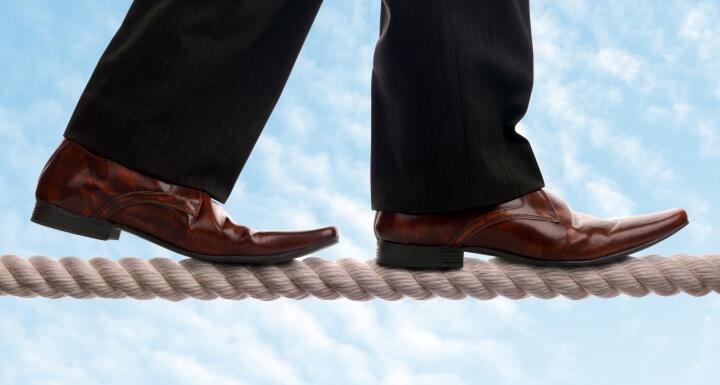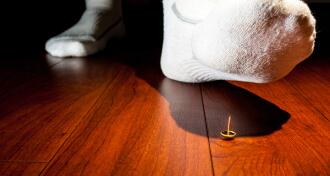The year 2013 saw some of the most significant changes to the U.S. patent system in more than 60 years. Pending legislation and several cases to be heard by the United States Supreme Court could make 2014 another year of change.
The U.S. patent system was dramatically altered in 2013 with the full implementation of the America Invents Act ("AIA"). Further, the United States Supreme Court reversed 20 years of U.S. Patent and Trademark Office ("USPTO") practice by ruling that naturally-occurring genes are not patentable subject matter. While not on the same level as 2013, 2014 promises to be very active, both legislatively and in the courts.
Upcoming Legislation
After making the most significant changes to the U.S. patent system in more than 60 years with the AIA, Congress is hard at work on new legislation directed at non-practicing entities, or so-called "patent trolls."
On December 5, 2013, the House passed H.R. 3309, the "Innovation Act," which contains several provisions requiring patent litigants to disclose more information regarding their asserted patent and the alleged infringement. The Innovation Act would require plaintiffs to disclose the actual owner of the patent and to explain the basis for the suit in their pleadings. The bill also would require courts to determine the validity of the patent earlier in the litigation process and give judges more discretion in limiting discovery and awarding attorneys' fees to the defendant when the plaintiff fails to prove infringement. The Innovation Act would further allow small businesses to postpone patent suits against them until suits asserting the same patent against larger entities are resolved. The bill is in the Senate and is likely to pass sometime this year.
United States Supreme Court Patent Law Cases in 2014
The Supreme Court has been increasingly active in patent law cases, and that trend should continue in 2014. The Court has agreed to hear at least four cases in 2014 that could significantly impact how U.S. patents are obtained and litigated.
The Court has already decided one important patent case in 2014. In Medtronic, Inc. v. Mirowski Family Ventures, LLC, decided January 22, 2014, the Court held that when a licensee seeks a declaratory judgment against a patent holder to establish non-infringement of the licensed patent, the patent holder bears the burden of persuasion on the issue of infringement. Medtronic alters the balance of power between a licensee and a patent holder and potentially emboldens licensees to force patent holders to prove that licensed products or processes infringe the patent at issue. A licensee will face little risk in doing so because the patent holder cannot assert counterclaims against the licensee. The best possible outcome for the patent holder is to merely maintain the status quo.
Upcoming United States Supreme Court Cases for 2014
In 2014, the Court will hear cases addressing issues related to:
- The patent eligibility of certain software-related patent claims;
- The standard for inducing patent infringement;
- The standard for patent invalidity due to indefiniteness; and,
- The awarding of attorneys' fees in patent cases.
In Alice Corp. Pty. Ltd. v. CLS Bank Int’l, the Court will decide whether certain software-related patent claims are drawn to patent-eligible subject matter. The United States Court of Appeals for the Federal Circuit ("Federal Circuit") found that the computer-implemented method at issue, involving the exchange of financial instruments using a computer, was merely an abstract idea and not patent-eligible subject matter. This case is set for oral arguments before the Court on March 31, 2014.
In Limelight Networks, Inc. vs. Akamai Techs., Inc., the Court will decide whether all the steps of a claimed invention must be performed by a single party in order to give rise to induced infringement. The Federal Circuit previously held that a party could be liable for inducing patent infringement even when multiple parties perform different steps of the claimed invention. Prior to the Federal Circuit's ruling, it had been commonly understood that a finding of induced infringement required that the inducing infringer exercise direction or control over a direct infringer who did not perform all of the steps itself. This case has garnered the intense interest of the computer industry. Oral arguments have been scheduled for April 30, 2014.
Nautilus, Inc. v. Biosig Instruments, Inc. involves a heart rate monitor for use with an exercise apparatus and addresses the requirement that patent claims be clear and distinct, i.e., not indefinite. The Court will address:
- Whether the Federal Circuit's acceptance of ambiguous patent claims with multiple reasonable interpretations – provided the ambiguity is not "insoluble" by a court – defeats the statutory requirement of particular and distinct patent claiming; and,
- Whether the presumption of patent validity dilutes the requirement of particular and distinct patent claiming.
In Nautilus, the Federal Circuit held that functional claim language lacking specific parameters in the specification are not invalid as indefinite if the claimed invention provides "inherent parameters" sufficient for one of ordinary skill in the art to understand the metes and bounds of the claim, even if some undue experimentation is required. This case has received much attention from the software industry. Oral arguments have been scheduled for April 28, 2014.
In the combined cases of Highmark Inc. v. Allcare Mgmt. Sys., Inc., and Octane Fitness v. ICON Health & Fitness, the Court will decide whether a district court's finding that a patent suit is objectively baseless is entitled to deference and how much discretion a district court should have in determining whether a patent case is exceptional, thereby entitling an accused infringer who prevails to attorneys' fees.
In these combined cases, the Court will consider whether the Federal Circuit's use of a rigid test for determining whether a patent case is "exceptional" improperly appropriates a district court's authority to award attorneys' fees to an accused infringer who wins its case, thereby raising the standard for accused infringers, but not the patent holder, to recoup attorneys' fees. Under the current two-part test applied by the Federal Circuit, absent litigation or patent misconduct, a district court may award attorneys' fees to an accused infringer only if the court finds that the patent holder brought the claim in "subjective bad faith" and the claim was "objectively baseless." If the Court expands the lower courts' discretion, frivolous or predatory patent suits could be effectively curtailed. Oral argument for these cases was held on February 26, 2014.
Conclusion
One trend that is apparent from the current pending legislation and the pending 2014 Supreme Court is that Congress and the courts intend to address the proliferation of patent suits brought by non-practicing entities. Software and computer-implemented methods have been caught up in this undercurrent against patent trolls mainly because they are the most common patents asserted by non-practicing entities. It will be interesting to watch how all of this shakes out during 2014 and whether patents in other technology areas are swept up in the current trend to curb frivolous or predatory patent suits.






